Adapted from a short talk prepared for Rome Sustainability Innovation Fashion Week.
Fashion Market value
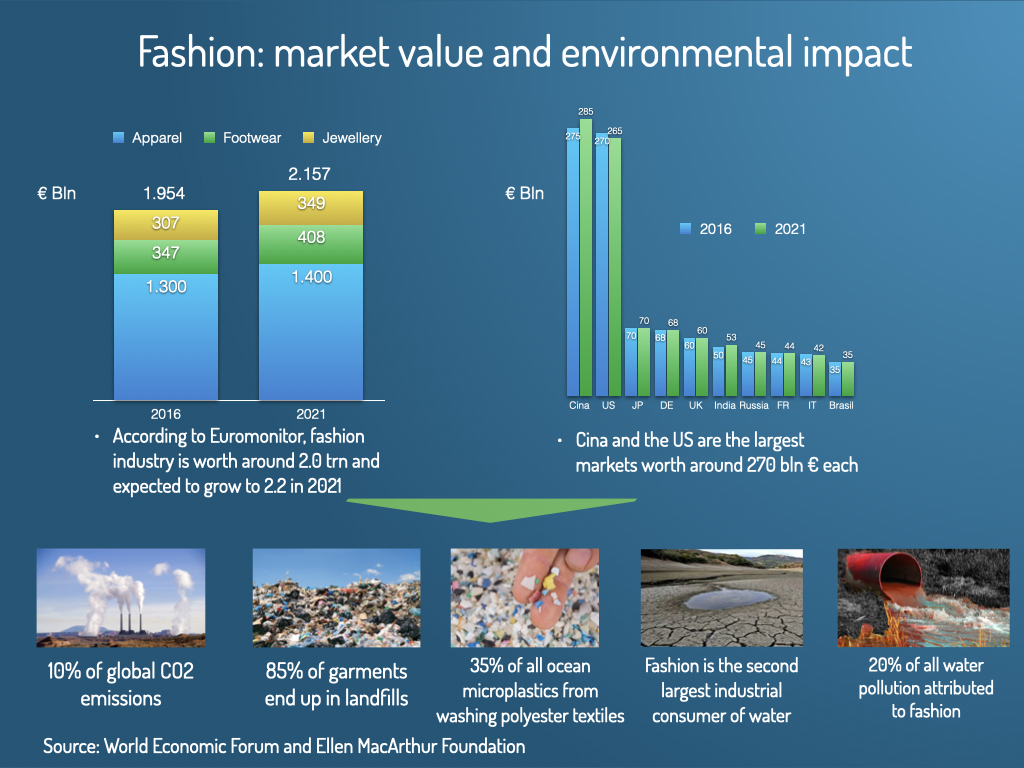
The fashion industry is valued close to € 2 Bln and – before covid – was expected to grow to 2.1 in 2021. Lead markets for the industry are the US and China each worth around 270 € Bln.
Unfortunately this important creation of value comes at a cost to the environment. Fashion is in fact considered one of the most polluting industries. The industry accounts for 10% of global CO2 emissions, 35% of microplastics in the ocean and is one of the largest consumers and polluters of water.
Covid Impact on Fashion
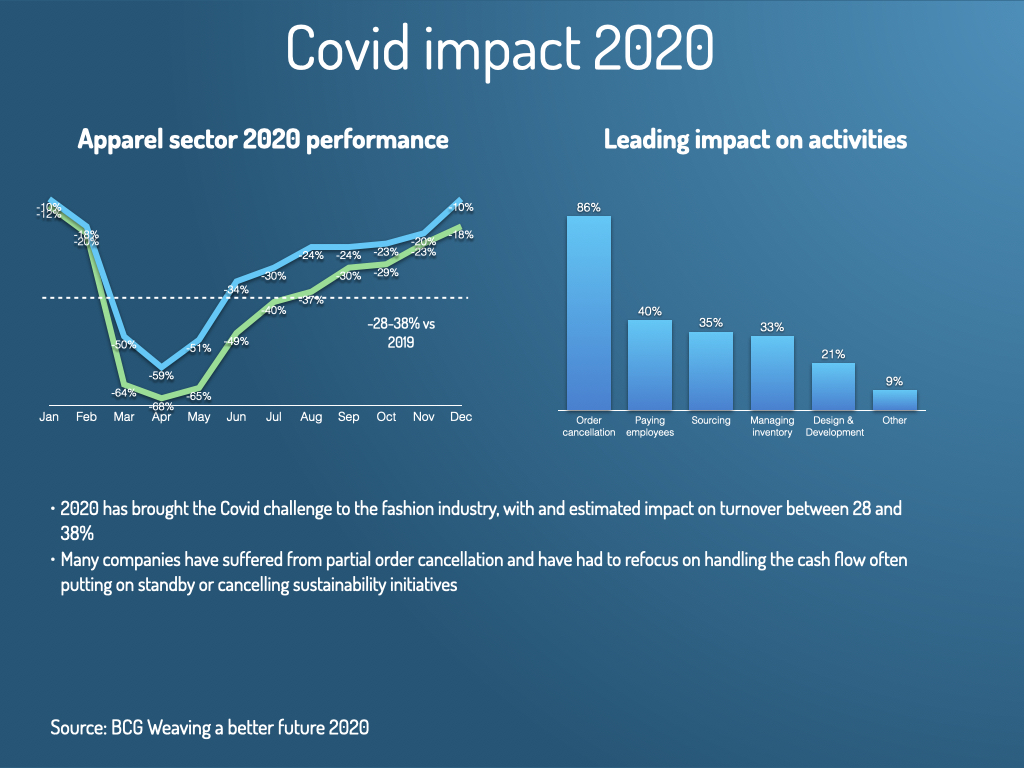
It’s been a hard year for the fashion industry. The expected drop in sales for 2020 will be between 30 and 40% at the end of the year. Many companies have had to deal with order cancellations and to refocus on cash flow to meet obligations. Companies have often set aside their environmental efforts for issues perceived as more stringent.
The opportunity
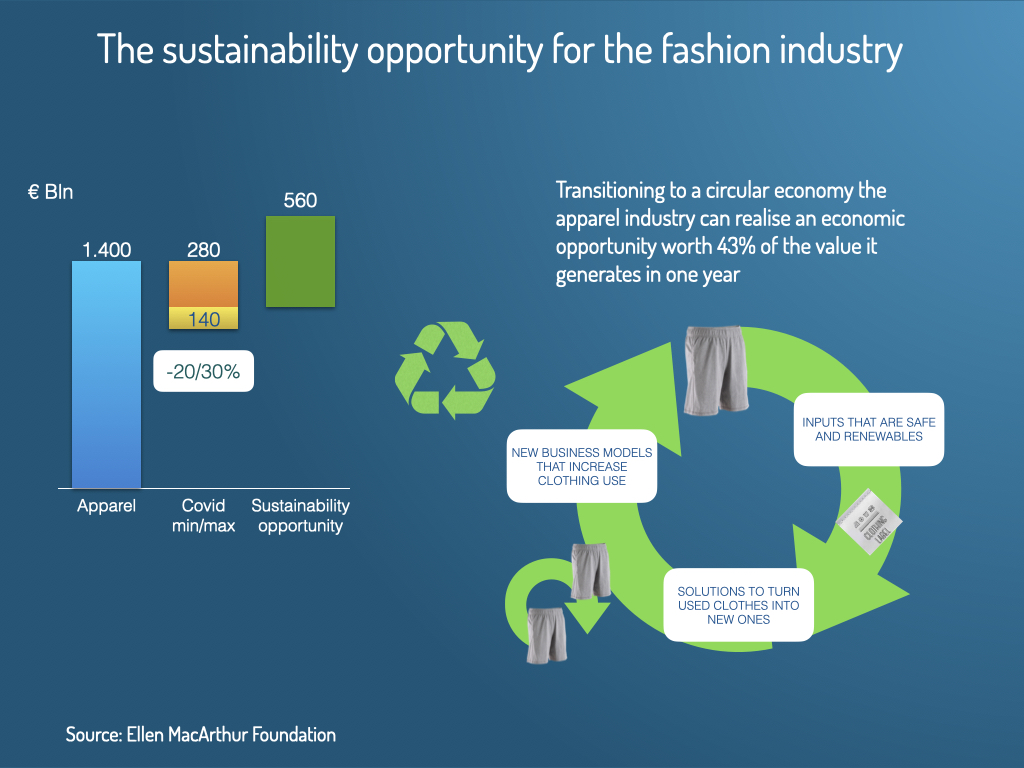
Alas, companies that step out or sidestep the environmental agenda forego an important opportunity. The Ellen MacAthur Foundation, that promotes the transition towards a circular economy, estimates an economic upside of 560 Bln € for fashion. This amounts to 43% of its annual turnover by adopting a sustainable approach.
The suggested recipe is actually quite simple. Design for circularity and reuse, adopt recycled inputs and experiment business model that increase the use of clothing.
Sustainability in fashion: state of the art
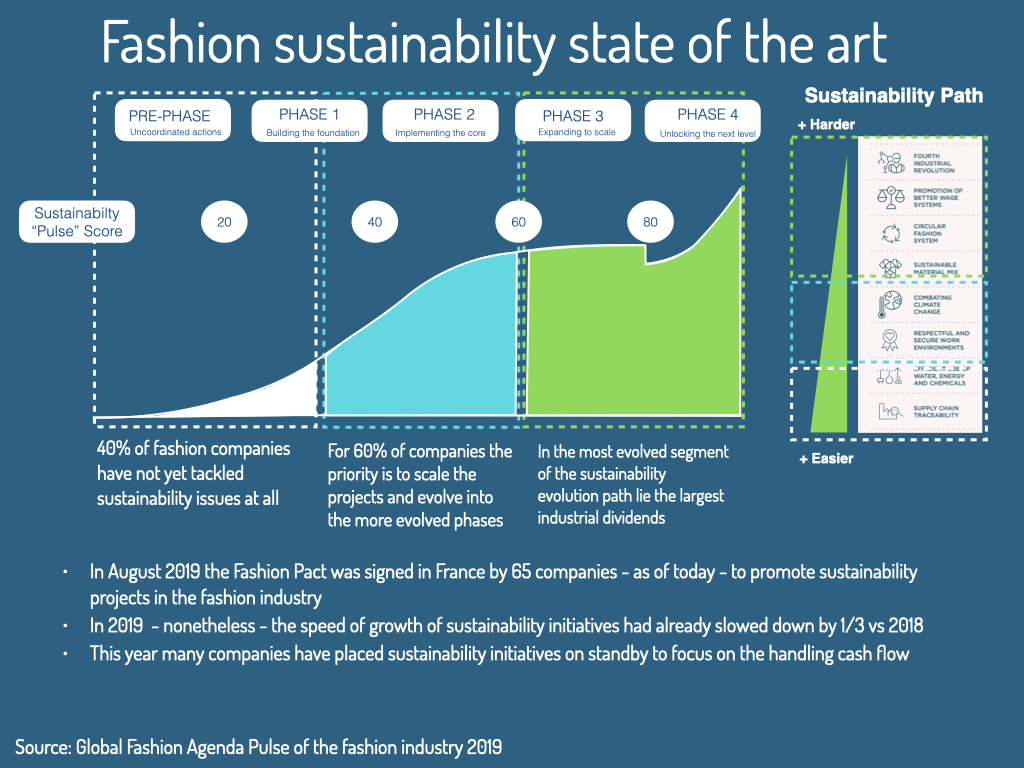
Moreover, the fashion fashion industry has yet much to do to promote a sustainable approach. This was the result of a 2019 analysis by the Global Fashion Agenda, dedicated to that objective.
As a matter of fact 40% of companies have yet to start along the sustainability journey, while another 40% are only in the intermediate phases. Their objective is now to scale and leap into the more complex and value adding activities.
2019 has seen mixed results. The Fashion Pact was signed in Paris by 65 companies to commit to and drive their sustainability efforts. At the same time, there was also a slowdown in the speed of growth towards sustainability compared to 2018.
2020 will fare even worse, as an effect of the worsened economic climate.
The value of sustainability for fashion
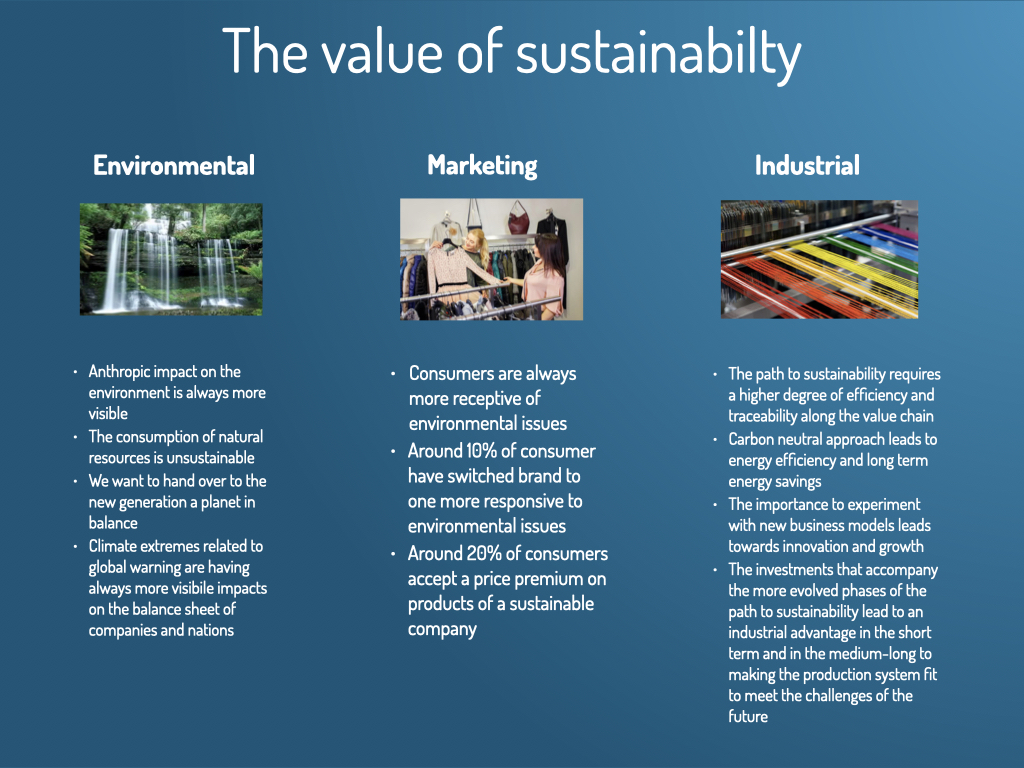
Yet, sustainability yields three orders of benefits:
- Environmental. We don’t inherit the earth from our ancestors, we borrow it from our children. It’s out responsibility to reduce anthropic pressure on the planet.
- Marketing. Consumers are always more sensible and responsive to environmental issues. They take into account a company commitment to sustainability in their purchasing decisions.
- Industrial. The sustainability journey starts by traceability in the supply chain and evolves carbon footprint, new business models and ultimately investments. This process leads to efficiency and preparing the industry for the challenges of upcoming the 4th industrial revolution
AI support to sustainability in fashion
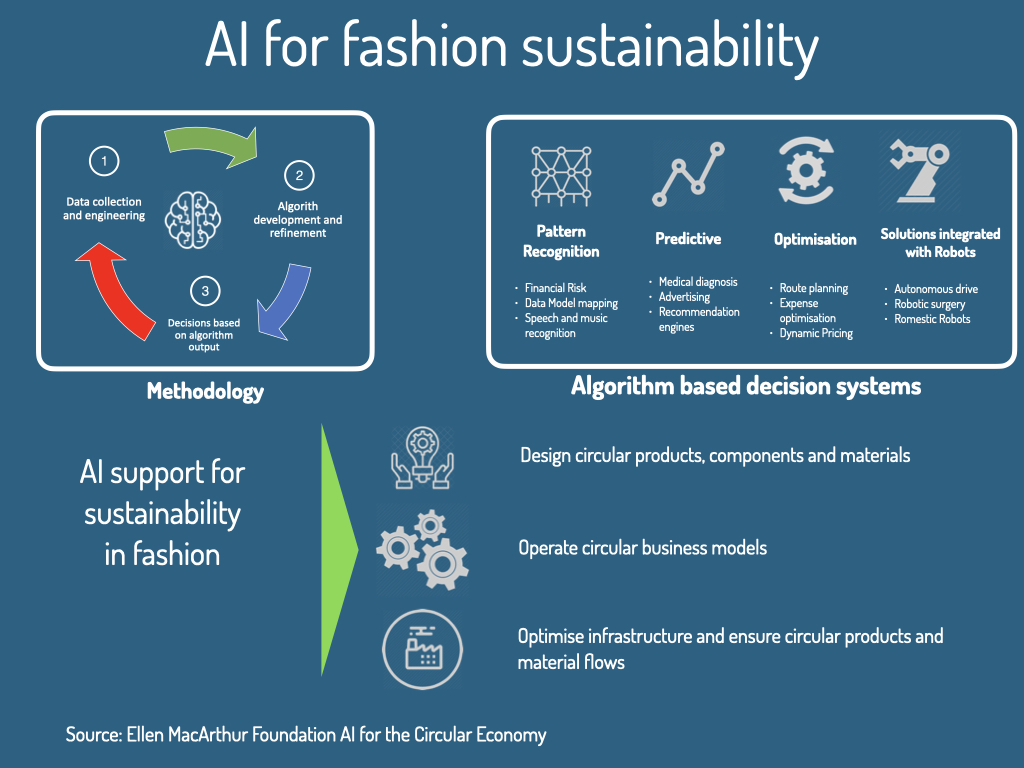
In the technology investment side, AI – Artificial Intelligence – will play a crucial role as an enabler of sustainability for fashion. Specifically, the wide availability of data and smart algorithms make it possible to use extensively AI based decision systems. Those find application in design, in the operation of the new business models and in the optimisation of production infrastructure.
In conclusion, as we are coming out of the Covid pandemic, it’s critical to rethink the role of sustainability in fashion. The adoption of a comprehensive approach, involving every step of the production process, will be of great benefit both to income statement and the environment.
If you enjoyed this post, please find here other articles
